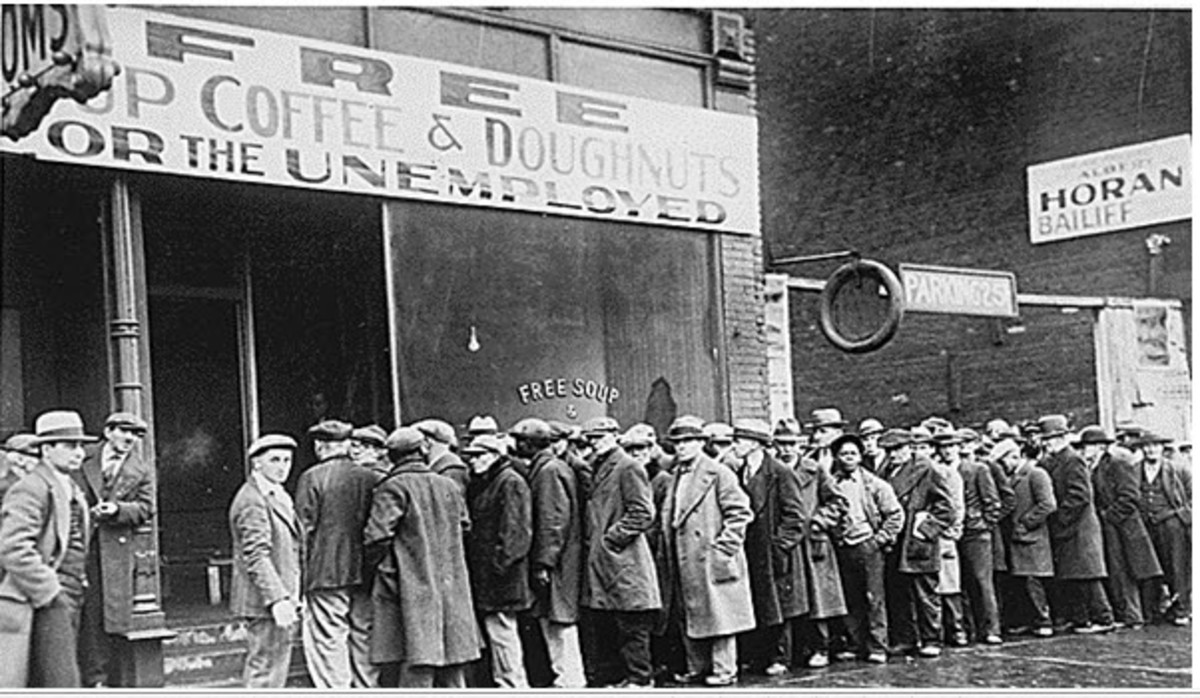Wall Street & Free Markets

It seems that Conservatism has become synonymous with greed. The term free market has almost become a religion by those who preach against "Big Government." But has the mantra of small government in reality become a code word for big business? I believe there are powerful "corporatists" who have taken over our government and use arguments against socialism as a red herring while stealthily ensuring minimal regulation of Wall Street.
Interestingly, it appears Democrats have also been complicit in the deregulation of Wall Street even though many of the troubles of our economy has been predominantly laid at the feet of the Bush Administration. There has been much analysis and discussion about sub-prime mortgages, financial derivatives and other esoteric financial instruments and though I've spent some time researching these things, like most Americans, I find they are difficult to understand.
If you read enough, though, you find one thing that occurred back in the 90's that may have been the root of our economic problems today: the repeal of the Glass-Steagall Act ("GSA"). Simply put, the GSA, enacted back in 1933, ensured the separation of commercial banking, insurance and securities investment. In short, it was a law in response to the collapse of the stock market and was intended to maintain the solvency of our banking industry.
But in 1999, this separation of banking and securities investment (or brokerage) was eliminated by the Gramm-Leach-Bliley Act, which allowed commercial banks, investment banks, securities firms and insurance companies to consolidate (per Wikipedia). Many Democrats have blamed Republicans for this as Phil Gramm, (a former Republican Senator from Texas and a staunch conservative) whose name is on the bill, was seen as a primary driver of this legislation. But,the bill was signed by Bill Clinton, whose Secretary of Treasury was Robert Rubin, who spent 26 years at Goldman-Sachs prior to his tenure with the Clinton Administration and 8 years at Citigroup after he left the government. During his time as Treasury Secretary, Rubin strongly opposed the regulation of derivatives.
We all know the government (you and I) provided bailout money (TARP for instance) to some of the biggest names on Wall Street including the two I mentioned above (Goldman-Sachs and Citigroup). As a point of interest with respect to deregulation and the bailouts, note the names of the following men who have held high-level positions in our government: Robert Rubin (Clinton Administration, Sachs and Citigroup), Lawrence Summers (Clinton and Obama Administrations, The World Bank and high-level ties to Wall Street), Henry Paulson (Bush Administration and Goldman Sachs) and Timothy Geithner (worked under Rubin and Summers in the Clinton Administration, current Secretary of Treasury for Obama and former President of the Federal Reserve Bank of New York). In other words, Wall Street had its men firmly in place for almost two decades regardless of which political party resided in the White House.
So what's this all about? It looks to me that the big money interests in our country are all about privatizing profits and socializing losses (meaning you and I pay). Corporate America has managed to impose its will on the government by minimizing regulation and ensuring bailouts due to the philosophy of "too big to fail." And in light of all this, I believe we are witnessing hypocrisy on the part of both parties. The Republicans (Conservatives) are preaching small government while simultaneously supporting a massive defense budget and earmarks, while the Democrats act like they are Socialists, yet they are stealthily supporting the takeover of our government by Wall Street.
My primary focus on all of this is the Conservative message because I've always been a Conservative. We hear how freedom is won and preserved by a strong military. We also hear how the economy should be minimally regulated by the government. In my view, freedom as individuals is protected not just by the military, but by vigorous enforcement of our laws by the government. Yet, Conservatives only want a strong military. There is no interest in a strong SEC, which in my view, is to the economy what our military is to freedom in the world. Why would a true, philosophically grounded Conservative not want a strong SEC? It makes no sense. Not only do Conservatives appear uninterested in strong regulation (by funding the SEC to relative levels of the military), but in fact, wish to neuter our laws by repealing prudent laws (Glass-Steagall) and obstructing regulation of complex financial derivatives. In my view, there is only one reason for this: greed.
I believe we need a strong defense. But our military is a gold-plated Cadillac with no internal braking mechanism for cost savings. Our military is the greatest machine in the history of the world, but it is extremely costly. They are chemotherapy. They kill and destroy and deter nation-states from attacking us. But how afraid are you of this actually happening? I don't consider 9/11 to be a true attack by another country. Certainly not enough to justify the amount of money spent on weaponry that are not effective against guerilla tactics and zealotry.
I am much more afraid of my small nest-egg being destroyed than I am about being killed by our enemies, yet there appears to be no real deterrent in place for that. We all watched helplessly as our 401k's took a hit in the 90's and in the past two years. But, do we have a "military" guarding our livelihood? Do we have a "military" guarding our financial freedom? No....
What needs to be controlled is criminal activity; but even more, we need to regulate and criminalize some of the behavior that is taking place under the guise of deregulation. Promoting competition means vigorous enforcement of anti-trust laws because the spirit of competition does not exist in the business world. Controlling the market is where the trend lies. The government must ensure too much power is not vested in a single entity. In my opinion, Conservatives who try to convince you that a free market needs very little in the way of rules or enforcement are not true Conservatives.
We need to stop being so passive and reactive and in turn, vigorously demand that our elected officials carve out a significant portion of our federal budget and earmark it for the enactment and enforcement of tough financial laws. Adam Smith wrote about the "invisible hand" of the free market. The problem with the invisible hand is that it's too Machiavellian to wait out the market adjustments. It hurts too many people. Thus, we have bailouts. Another hand, so to speak. Guess where that hand comes from? The government (you and I again). So, if the government is expected to bail out the economy, then it's only fair that the government regulate the market and vigorously enforce the rules. Then and only then can we have a true market where merit and not unfair advantage receives the fruit of our labor.
I don't expect anyone to bail me out for my mistakes. But, I don't want to see someone bailed out who caused my life savings to be cut in half. It makes no sense except possibly one thing: we are being led by corrupt individuals who interchangeably wear the hats of Liberal or Conservative.
"Meet the new boss; same as the old boss..."








